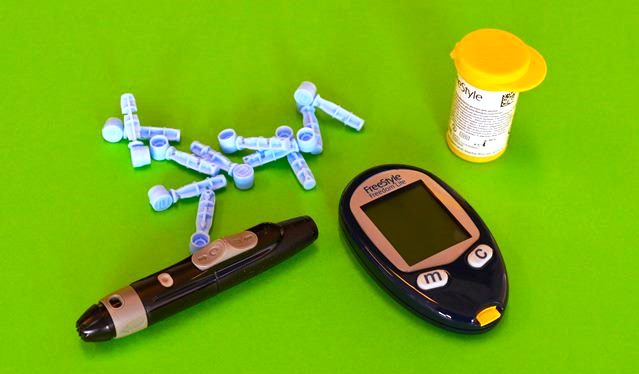Last Updated on May 15, 2023
Are you looking to build muscle and gain weight? Or you’re trying to understand why you’re not losing weight despite eating less. The answer to both of these questions lies in the concept of a calorie surplus.
But what exactly does it mean to be in a calorie surplus? Simply put, a calorie surplus means consuming more calories than you burn daily. When this happens, your body uses excess energy to build muscle, store fat, or perform other functions.
Therefore, it is essential to understand this concept if you want to change your body composition, whether it be to gain muscle or lose weight.

What Is a Calorie Surplus?
A calorie surplus is when you consume more calories than your body requires or more than you burn. The body can use this extra energy to build muscle, store fat or perform other functions.
Calories are a unit of measurement for energy. They are the fuel that powers our bodies and are necessary for survival. When we eat food, we consume calories, and when we exercise or perform other physical activities, we burn calories. The goal is to find a balance between the number of calories we consume and the number of calories we burn.
For example, if you burn 2,000 calories a day but consume 2,500 calories, you are in a calorie surplus of 500 calories. This means the body has more energy than it needs to function, meaning more is left for other functions. This explains why muscle gain and calorie surplus are linked.

When the body has a calorie surplus, it has the energy it needs to build muscle. However, it is important to remember that proper nutrition and exercise are also essential for muscle gain. Consuming more calories without proper nutrition and exercise can increase body fat rather than muscle.
Lastly, weight loss and calorie deficit, on the other hand, are also linked. You have a calorie deficit when you burn more calories than you consume. This is because when the body does not have enough energy to function due to a calorie deficit, it begins to burn stored fat as fuel, resulting in weight loss.
However, creating a sustainable calorie deficit is critical, as restrictive or drastic dieting can result in muscle loss and other negative side effects.
Read: What Does Calorie Deficit Mean?
How Does a Calorie Surplus Happen in the Body?
A calorie surplus can be achieved in many ways. One method is to overeat. Overeating can occur for various reasons, including emotional eating, a lack of portion control, or a failure to pay attention to how much food is consumed.

A lack of physical activity can also create a calorie surplus. When a person does not burn enough calories through exercise or other physical activities, the body may not require all the energy from food. This can occur due to a sedentary lifestyle, a lack of physical activity opportunities, or an injury that limits movement.
Consuming high-calorie foods may also result in increased calories for some people. Foods high in fat, sugar, and refined carbohydrates can contain many calories. And eating a lot of them can lead to a calorie surplus.
Certain medical conditions can also cause you to have more calories than your body needs. Some hormonal imbalances or medications, for example, can increase appetite, resulting in overeating and a calorie surplus.
It is important to note that a calorie surplus isn’t always bad. It can benefit some individuals looking to build muscle or gain weight. However, it is crucial to be mindful of how a calorie surplus is created and ensure it is done healthily and sustainably.
Read: How Does Sugar Consumption Affect Your Health?
Effects of a Calorie Surplus Diet on the Body
Some of the most notable effects include:
Weight Gain

The most obvious effect of a calorie surplus is weight gain. When the body has more energy than it needs, it stores the excess as fat, increasing body weight.
Increased Muscle Mass
More calories than your body require can also lead to an increase in muscle mass. When the body has more energy than it needs, it can use that energy to build and repair muscle tissue. This is why bodybuilders and other athletes often use calorie-surplus diets to increase muscle mass.

Improved Recovery
More calories can also help improve recovery after exercise. The body needs the energy to repair and rebuild muscle tissue, and a calorie surplus provides it with the energy it needs.
Increased Energy Levels
A calorie surplus can also lead to increased energy levels. When the body has more energy than it needs, it can use that energy to perform other functions, such as physical activity.
Risk of Weight-Related Health Problems
Note that a calorie surplus can also lead to weight-related health problems such as obesity, heart disease, and type 2 diabetes.

The effects of a calorie surplus will differ depending on the individual and the circumstances. Therefore, it is necessary to seek the advice of a healthcare professional or a registered dietitian to understand how a calorie surplus can affect your body and to ensure that it is done healthily and sustainably.
Muscle Gain and Calorie Surplus
We’ve already mentioned how muscle gain and calorie surplus are closely related. Let’s break it down more.
When the body has an excess of calories, it has the energy to build muscle. However, it is important to remember that proper nutrition and exercise are also essential for muscle gain. When trying to build muscle, the goal is to create a calorie surplus specifically directed toward muscle growth.

To build muscles, you must consume enough protein, as it is the building block of muscle tissue. Consuming enough carbohydrates is also important, as they provide the energy needed to perform intense exercise. Additionally, consuming enough healthy fats is important, as they are a source of energy and support hormone production.
This is why
Read: What is Creatine and Is it Healthy?
Resistance training, such as weightlifting, is particularly effective for muscle gain. When muscles are subjected to resistance, they are broken down, and the body uses the energy from a calorie surplus to repair and rebuild the muscle, making it stronger and bigger.
Hence, it is required to have a well-designed training program that includes progressive overload, adequate rest and recovery, and adequate volume, frequency, and intensity.
But it’s not always straightforward. A calorie surplus isn’t enough to build muscle. Consuming an excess of calories without adequate nutrition and exercise can increase body fat rather than muscle.
In addition, consuming too many calories or not enough of the right types of food can be harmful to health.
Potential Risks and Side Effects of Gaining Muscle Through a Calorie Surplus
Gaining muscle through a calorie surplus can have some potential risks and side effects if not done right.

We have already discussed the risk of body fat. Here is a highlight of some of the other potential risks and side effects:
Overtraining
Overtraining occurs when the body is subjected to intense exercise without adequate rest and recovery. This can result in muscle fatigue, injury, and decreased performance.
Therefore, it is extremely crucial to have a well-planned training program that includes adequate rest and recovery, as well as adequate volume, frequency, and intensity.
Hormone Imbalance
Consuming too many calories can result in insulin overproduction, which can cause hormonal imbalances that restrict muscle growth. Therefore, if you suspect that you have a hormonal imbalance, you should monitor your calorie intake and consult a healthcare professional or a registered dietitian.

Nutrient Deficiencies
Too many calories from nutrient-deficient sources, such as junk food, can result in nutrient deficiencies. And this can hurt muscle growth and overall health.
Thus, to ensure that the body receives all the necessary nutrients for muscle growth, consuming a well-balanced diet rich in nutrient-dense foods is essential.
Before you go…
Hey, thank you for reading this blog to the end. I hope it was helpful. Let me tell you a little bit about Nicholas Idoko Technologies. We help businesses and companies build an online presence by developing web, mobile, desktop, and blockchain applications.
We also help aspiring software developers and programmers learn the skills they need to have a successful career. Take your first step to becoming a programming boss by joining our Learn To Code academy today!
Be sure to contact us if you need more information or have any questions! We are readily available











